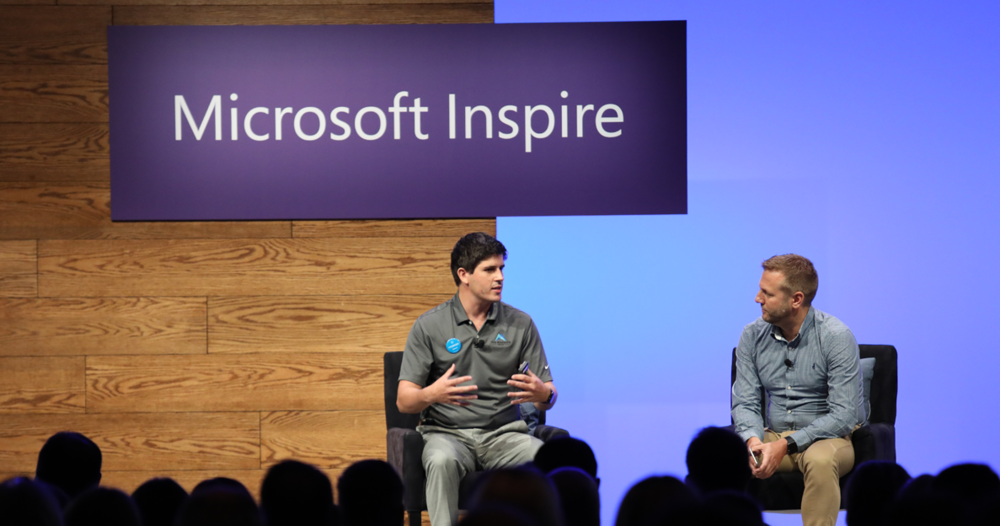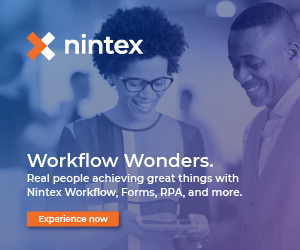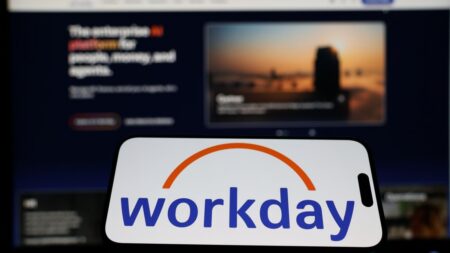A couple of weeks after CEO Satya Nadella proclaimed his company’s new “industry-first focus,” Microsoft has acquired an advanced-technology boutique in the industrial sector to pump up its recently launched Manufacturing Cloud.
(In my weekly Cloud Wars Top 10 rankings, Microsoft has been #1 for more than two years.)
In a March 16 blog post, Microsoft described its new acquisition, Marsden Group, as “a leader in industrial technology innovation and rapid prototyping.”
Fair enough—from some of Marsden Group’s client engagements, it certainly looks like it fully lives up to that description.
But in a larger sense, why did Microsoft decide to acquire a relatively small company (maybe 100 employees?) in the manufacturing/industrial sector rather than buy a larger player in the more digitally intensive industries of financial services, retail or life sciences?
First, I’ll share part of what Microsoft said about Marsden Group, and then I’ll offer my own thoughts in conjunction with some stories about customers Marsden has served.
In the Microsoft blog post cited above, corporate VP for cross-industry solutions Omar Abbosh wrote:
We know that in asset-intensive industries, such as manufacturing, automotive or logistics, companies face unique challenges in adopting new technologies, for example connecting industrial equipment safely and securely to the cloud, overcoming data silos and supporting interoperability across modern and legacy systems. Through recent projects, I’ve seen firsthand what The Marsden Group and Microsoft can do, what’s possible when we bring together our cloud, edge, IoT, digital twin and AI capabilities with The Marsden Group’s speed, agility and technical creativity.
That’s a very specific pointer toward industrial markets—or as Abbosh puts it, “asset-intensive industries, such as manufacturing, automotive or logistics”—that are eagerly embracing the disruptive move toward data-driven digital business.
But then Abbosh added a comment that signals that Microsoft might be looking at Marsden Group to have an impact in other industries as well as Microsoft accelerates its move into industry clouds. He wrote: “In our ever-changing world, we see an urgent need to build agile operations and supply chains to address disruptive market forces and consumer demands. With this investment, we are taking the next step to help our customers across all industries envision and build digital solutions faster” (emphasis mine).
So a clear takeaway from that is Microsoft’s massive commitment to a full portfolio of industry clouds, not just to a single specialized industrial cloud.
How did Marsden attract Microsoft’s attention?
The company’s been developing advanced-technology solutions around Azure for years and participated in some big Microsoft engagements with huge companies. And clearly along the way, Marsden made a big impression on Microsoft.
In fact, a press release put out by Marsden in July 2019 about its collaboration with Microsoft on a big project for Unilever includes this quote from Microsoft executive vice president Judson Althoff: “The work that you have done is really something special here. The outcomes driving the digital capability are best in class. I am humbled to have the opportunity to travel the world to see a lot of solutions and this is one of the most impressive I’ve seen. And the most impressive part is how you’ve engaged people. It’s a winning formula.”
Whatever shortcomings Microsoft’s new acquisition might have, lack of confidence is not one of them. The headline on that press release is “The Marsden Group: How a Small Tech Company You Have Never Heard Of Just Transformed the Manufacturing Industry.”
When channeled properly, ambition is a wonderful thing. And the primary client at Unilever overseeing that project used that exact word in his comments about the role played by Marsden: “When your ambition is as great as ours, you need partners who can help you positively disrupt your operations,” explains Dave Penrith, Chief Engineer at Unilever. “The team at The Marsden Group have shown us new possibilities to improve our supply chain. Their speed, amazing energy, and diversity of thinking have been second-to-none.”
Here’s how another client, Seadrill, described its experience with Marsden Group in a big project with Microsoft aimed at delivering “data-driven decision making”:
We collect millions of lines of data relating to every aspect of our performance and turn it into information from which we can extract knowledge and make faster, better and focused choices.
With such real-time knowledge and information, we are improving drilling efficiency, safety and delivering wells to a consistently high standard.
We have created an exclusive partnership with one of the world’s leading data science companies, The Marsden Group, who have a track record in leading innovation in fast-changing industries including the energy industry. Together with Microsoft, we are building a bespoke digital platform called PLATO, to support the understanding of large data sets from our operations using Microsoft Azure, a cloud-based computing service for our data-crunching requirements.
It works by using a series of pre-built algorithms and models that are trained to understand when any area of our performance data is showing an ‘exception to the norm’. If unusual or abnormal trends are identified, PLATO provides clear and specific recommendations for how to improve the overall rig performance. Over time, not only do we learn from the actions taken on board specific rigs, but also how these actions influence performance across the whole of our fleet. We have installed PLATO on four of our rigs to date and in the process of rolling it out across the rest of our floater fleet.
All of this is more evidence of two things. First, that industry clouds will be one of the hottest—and perhaps the hottest—cloud trend of 2021. And second, that mighty Microsoft, the longtime leader of the Cloud Wars Top 10, clearly intends to lead the industry-cloud market as well.
RECOMMENDED READING
SAP Rejects Larry Ellison Claims of Customer Turmoil: ‘Demand Is Exploding’
How Oracle Won 100+ Cloud Deals from SAP: a Chat with Steve Miranda
Oracle CEO Safra Catz: 6 Reasons to Be Bullish on Oracle Cloud
After Hard-Hitting Attack from Oracle’s Larry Ellison, 5 Things SAP Should Do
Larry Ellison Rocks the Cloud: Oracle OCI on $2-Billion Run Rate
Can IBM Reignite Cloud Growth With Impressive New ‘Satellite’ Service?
SAP & Oracle Beware: Microsoft CEO Nadella Declares “Industry-First Focus”
New from Cloud Wars: Subscribe to the Industry Cloud Newsletter, a free biweekly news and commentary update on the booming demand from business leaders for industry-specific cloud applications.










